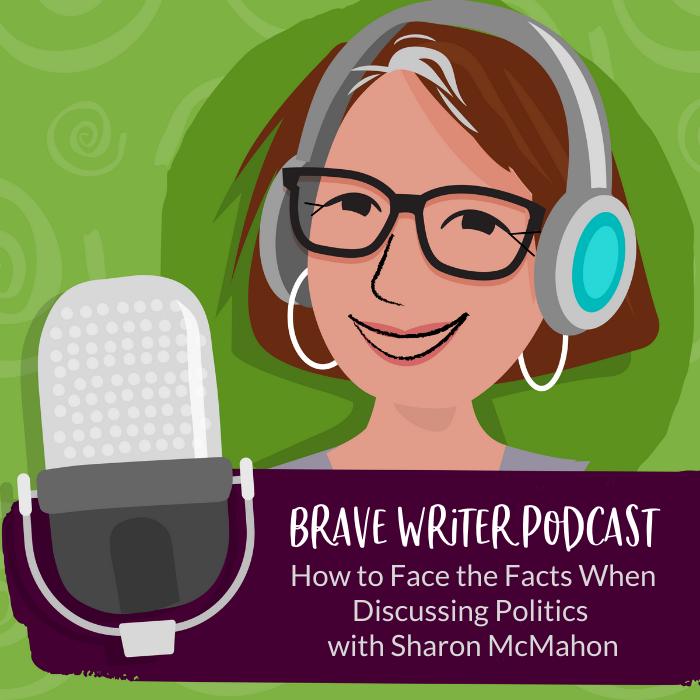Podcast: How to Face the Facts When Discussing Politics with Sharon McMahon

When it comes to politics, keeping your facts straight can feel nearly impossible. It seems as if every outlet has some political bias, and misinformation can run rampant on social media and take hold of millions without question. That’s why critical thinking — especially in this realm — is incredibly important.
Sharon McMahon of SharonSaysSo has so much to teach me — and all of us — about government, history, and whales. She’s a former high school government and law teacher who earned a reputation as “America’s Government teacher” amidst the historic 2020 election proceedings for her viral efforts to educate the general public on political misinformation.
Through a simple mission to share non-partisan information about democracy, Sharon launched her Instagram account to explain the facts without the political bias and clickbait that often go along with them. Her community of governerds have raised over 1.3 million dollars for people with needs and to relieve medical debt. She’s here to discuss the art of critical thinking.
In this podcast episode, we talk about the importance of unpacking biases, how to identify facts, when to defer to the experts, and how to think like a scientist.
Listen to the Podcast
Show Notes
Facing the Facts
There’s a lot of debate about what a fact actually is. Part of being a fact is that it really happened, which seems obvious. It should also be substantiated by multiple sources. It’s when you choose to interpret those facts in a certain way that things become more complicated. That’s when bias creeps in.
Bias does not negate the facts, but when it comes with an interpretation that is not our own, our job is to separate the fact from the bias and come to our own conclusions.
Leave it to the Experts
Identifying facts in fields where we are not experts is complicated. It becomes hard to agree on what is credible and we don’t know how to evaluate what is claimed to be facts. How do you find facts when you can’t personally verify it?
First and foremost, decide whether or not you really need to form an opinion on the topic. If nobody else is relying on you to know about the topic at hand, feel comfortable letting those who have expertise make those decisions.
Thinking Like a Scientist
Caring more about getting it right than being right is one way to approach new ideas. Listening to learn is powerful. People don’t tend to start listening until they themselves feel heard. If you cannot repeat back to a person what it is that they believe and why they believe it in a way that they would agree with, you do not understand it well enough and you are going to make assumptions.
It is so important for us to unpack our biases when talking about sensitive topics such as politics. It can be so easy to jump to conclusions, form opinions quickly, and then lord those opinions over others. But when we slow down, listen to understand, separate out the facts from the biases, then we can become better thinkers and better learners.
Resources
- Learn more at sharonmcmahon.com
- Follow Sharon on Instagram: @sharonsaysso
- Want help getting started with Brave Writer? Head over to bravewriter.com/getting-started
- Sign up for the Brave Writer newsletter to learn about all of the special offers we’re doing in 2021 and you’ll get a free seven-day Writing Blitz guide just for signing up: http://go.bravewriter.com/writing-blitz
Connect with Julie
- Instagram: instagram.com/juliebravewriter
- Twitter: twitter.com/bravewriter
- Facebook: facebook.com/bravewriter


















